-
•
•
33 responses
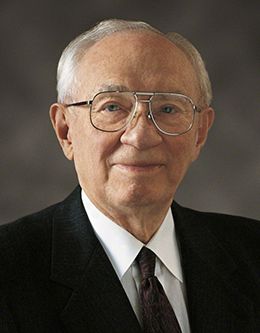
In the April 1997 General Conference Pres. Hinckley said everyone deserves “three things: a friend, a responsibility, and nurturing with ‘the good word of God’”[1. Gordon B. Hinckley, Converts and Young Men, General conference, April 1997]. If local leaders take this seriously, then: What responsibilities/callings can be given to someone who doesn’t think they are worthy? What responsibilities/callings can be given to someone who hasn’t resolved a serious sin? What responsibilities/callings can be given to someone who doesn’t wear garments? What responsibilities/callings can be given to someone who doesn’t pay their child support? What responsibilities/callings can be given to someone who… Read More
-
•
•
2 responses
The people of Hong Kong have delivered a spectacular message in Sunday’s elections, with a nearly total reversal of the 2015 election results. With a 71% turnout, and more than twice the votes cast compared with the last such election, there is no mistaking where the great majority of Hong Kong’s people stand on the direction of their society. This moment presents a vital opportunity for a shift to constructive engagement between pro-democracy activists and the government of Beijing-appointed Chief Executive Carrie Lam. Months of increasingly bold protests, met with increasingly aggressive government response, had created a tense standoff in… Read More
-
•
•
2 responses
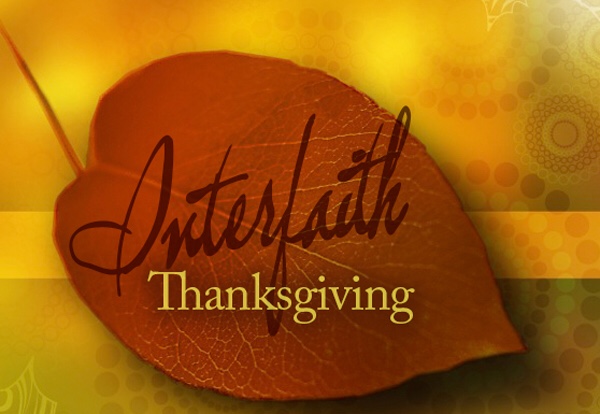
This coming Sunday our neighborhood will hold its 6th annual Interfaith Thanksgiving celebration. As many as 500 members of Jewish, Protestant, Catholic and Mormon congregations will join together for a program giving thanks and blessing children, followed by a communal thanksgiving dinner[1. FWIW, the keynote speaker this year is Dr. Ruth Westheimer! who is a member of one of the congregations]. As I’ve participated in the planning for the celebration each year, I’ve been pleased that our congregations are able to agree on so much. The nature of the holiday helps, I think, because Thanksgiving is nearly a universal holiday Read More
-
•
•
6 responses
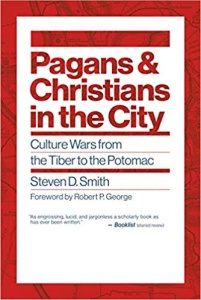
Steven Smith (who has occasionally favored us with comments here at T&S) is not the first to describe our current cultural moment as a new conflict between pagans and Christians. As Smith describes at length in Pagans and Christians in the City, others, on both sides of the divide, have done so using the same language. Smith does argue quite convincingly, however, that this new conflict of pagan vs. Christian is not merely an apt metaphor, but a sober description of the American religious landscape. Read More
-
•
•
22 responses
Next year, we’ll be studying The Book of Mormon in the Come, Follow Me program for the Church of Jesus Christ of Latter-day Saints. During this year’s study of the New Testament, I’ve benefited from reading complementary material, such as — as I was reading Romans — Adam Miller’s excellent Grace Is Not God’s Backup Plan: An Urgent Paraphrase of Paul’s Letter to the Romans. What are your favorite books that you’ve read or that you are anticipating reading to accompany your study of the Book of Mormon? I’ll put some of mine in the comments below to get us… Read More
-
•
•
The 7th Annual Summer Seminar on Latter-day Saint Theology “A Wrestle Before God: Reading Enos 1” Université Bordeaux Montaigne, Bordeaux, France June 22–July 4, 2020 Sponsored by the Latter-day Saint Theology Seminar in partnership with The Laura F. Willes Center for Book of Mormon Studies, The Neal A. Maxwell Institute for Religious Scholarship, and the Wheatley Institution In the summer of 2020, the Latter-day Saint Theology Seminar, in partnership with the Laura F. Willes Center for Book of Mormon Studies, the Neal A. Maxwell Institute at Brigham Young University, and the Wheatley Institution at Brigham Young University, will sponsor… Read More
-
•
•
8 responses
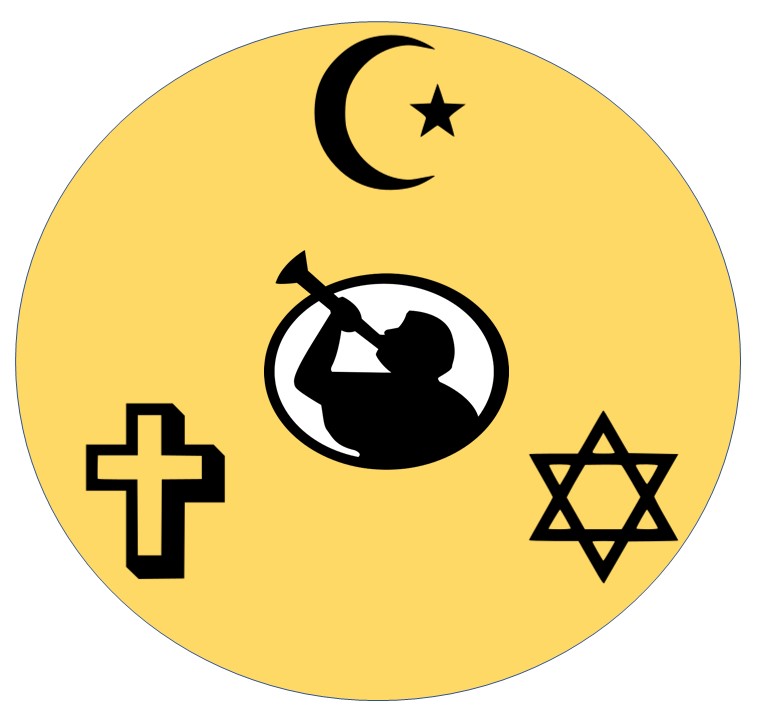
One of the most common topics featured on the Church’s news sites this year has been interfaith outreach by Church leaders and members. A list of articles includes: January 17: “How BYU Is Creating an Environment of Respect and Understanding for Students of All Faiths” February 19: “Tennessee Young Women Build Interfaith Bonds with Muslim Friends by Holding a Ward ‘Hijab Drive’” March 3: “Latter-day Saints Join Other Faiths to Change Women’s Lives” March 9: “Prophet Meets Pope Francis at the Vatican” March 16: “Statement of Support for Muslim Communities and All Others Impacted by Christchurch Shootings” March 18: “Church… Read More
-
•
•
30 responses
My brother-in-law called me last week to get my advice about a tithing question, in part, I think, because I have an accounting degree. He had inherited his parent’s home, and needed to pay tithing on it. But it would take time to sell the home, if he decided to do that, and the value of the home might change between the inheritance and when it sells. How should he decide what the home is worth in order to calculate how much tithing he should pay? I know that this type of question has been asked a lot—my brother-in-law is… Read More
-
•
•
17 responses
In General Conference in 2015, President Russell M. Nelson stated, “We need women who have a bedrock understanding of the doctrine of Christ and who will use that understanding to teach and help raise a sin-resistant generation.” The following year, President Neill F. Marriott of the Young Women General Presidency taught, “The Lord’s Church needs Spirit-directed women who use their unique gifts to nurture, to speak up, and to defend gospel truth.” Women who teach! Women who speak up! I believe that one way young women — like my daughter — learn to do this is by hearing women teach… Read More
-
•
•
47 responses
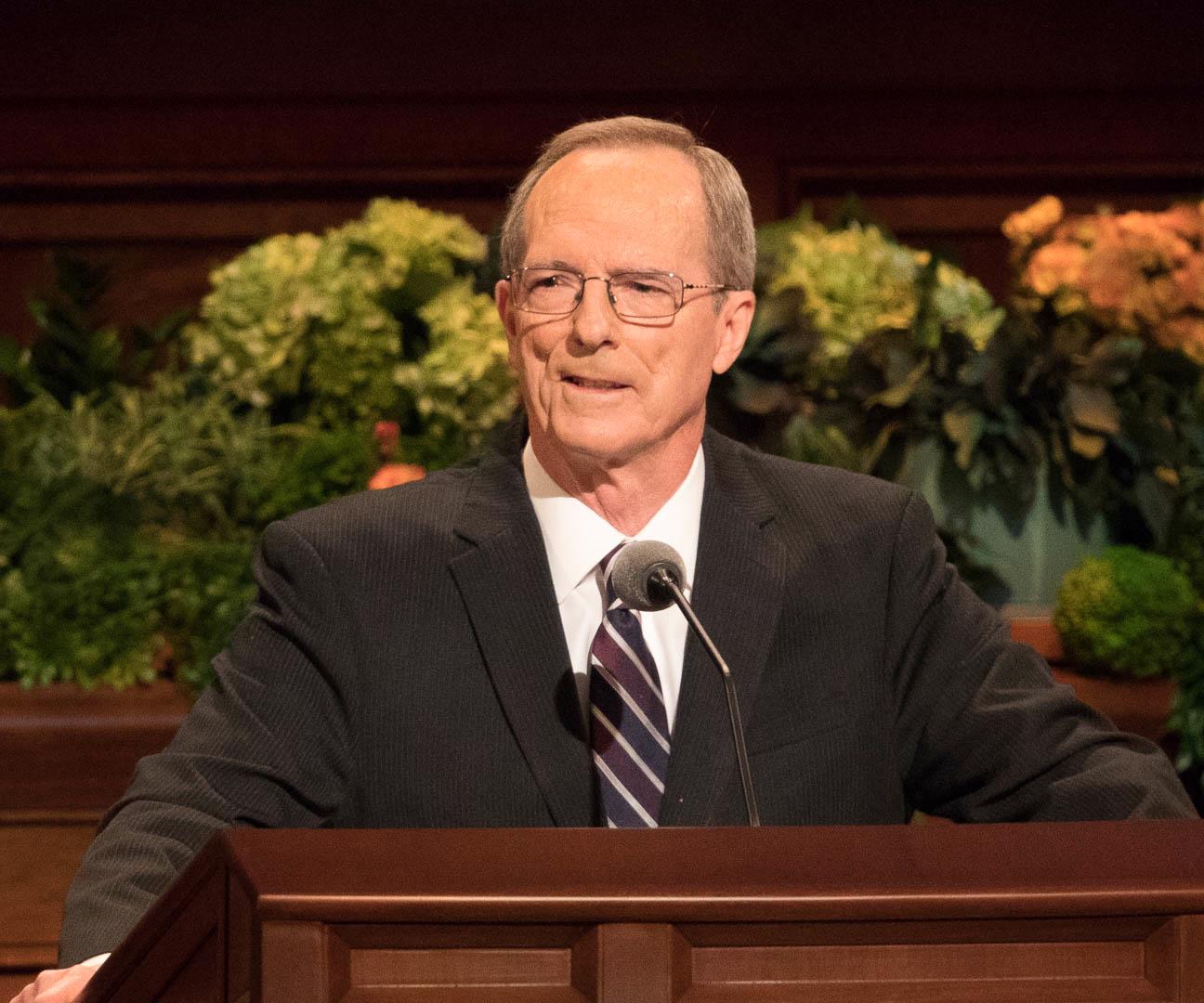
Elder B.H. Roberts of the Seventy once wrote that: So long as the truth respecting it is unbelieved {the Book of Mormon} will remain to the world an enigma, a veritable literary sphinx, challenging the inquiry and speculation of the learned. But to those who in simple faith will accept it for what it is, a revelation from God, it will minister spiritual consolation, and by its plainness and truth draw men into closer communion with God.[1] It can be difficult to pin down the Book of Mormon due to the many different things that can be used as evidence… Read More
-
•
•
20 responses
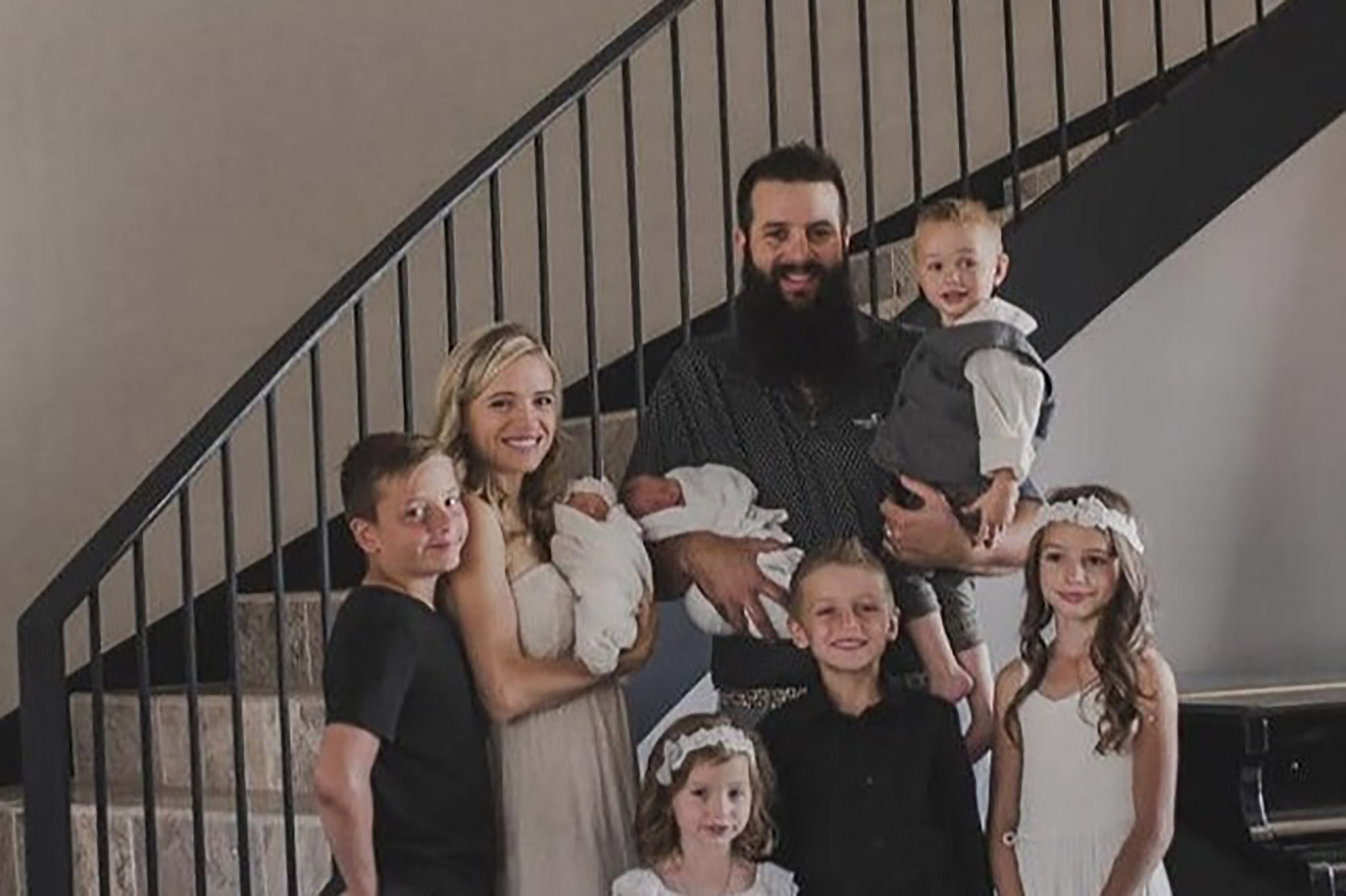
I read with horror the news this week that 9 fundamentalist Mormons in Northern Mexico were murdered, as did many of you. But at first, no doubt like many church members, I thought that this news had nothing to do with me. After all, they aren’t members of the Church, as the public affairs statement made by the newsroom makes clear. Then I read the last name of several of those killed. Read More
-
•
•
22 responses
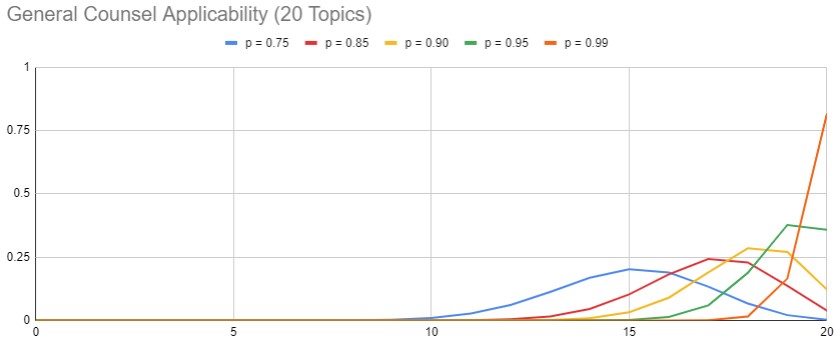
Todd Rose starts his book The End of Average off with some really arresting stories that all make the same point: there’s no such thing as an average person. His most in-depth example is based on how the Air Force designed their cockpits in World War II and the years immediately following. They took the dimensions of hundreds of pilots (arm reach, chest circumference, leg length, you name it) and then used the average of those measurements as the template for their cockpit design. The idea was that an average-shaped pilot would fit perfectly. And, since most of the pilots… Read More
-
•
•
One response

Joseph Smith began his ministry with a wealth of visions and revelations. Many among these were what have been called dialogic revelations–answers given by God to Joseph Smith in response to questions or specific situations. Written documents phrased as God speaking through Joseph Smith have been treated with particular weight, both by early Latter Day Saints and their spiritual heirs today. For those of us in the Church of Jesus Christ of Latter-day Saints, however, most of his successors to the presidency of the Church have not used the same method of giving voice to the will of God. With… Read More
-
•
•
One response
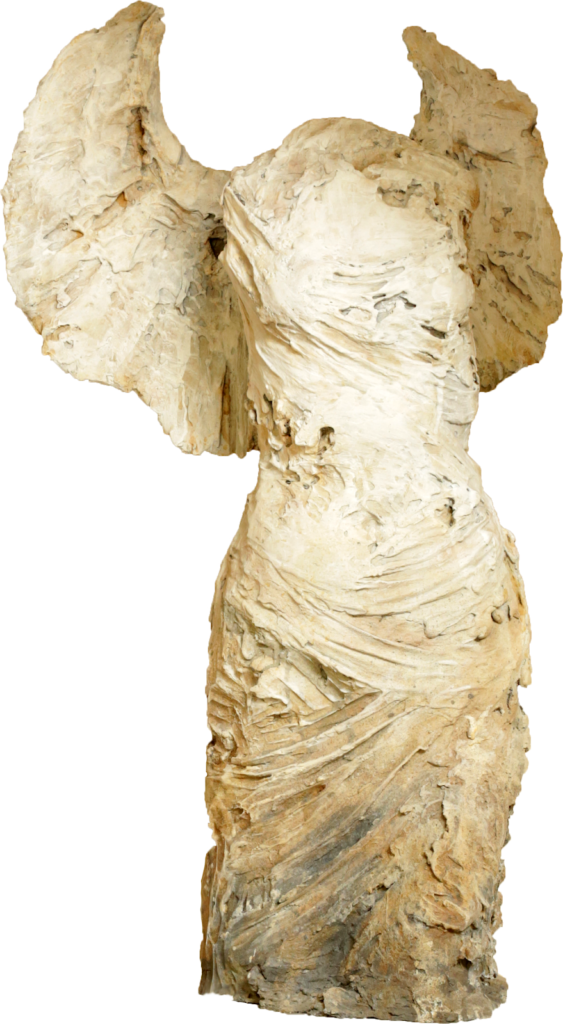
Mormon Scholars in the Humanities (MSH) invites proposals for its 2020 annual conference. The conference topic this year is Aesthetics, and papers or panels organized around the theme are encouraged. The deadline for submitting a proposal abstract is this Friday, November 1. The culture that surrounds the Church of Jesus Christ of Latter-day Saints has had mixed feelings about the body and the senses. While the “natural man” is an enemy to God, the spirit and the body are man’s soul. And while both scriptures may mean “men” as all human beings, there might be even more ambivalence about women’s bodies.… Read More
-
•
•
2 responses
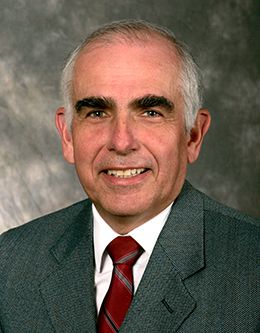
Temples hold a central place in Latter-day Saint history. The narrative of building the Kirtland and Nauvoo Temples and the impact it had on our theology is a dominant theme of the early Church. Even going beyond that, however, much of the history that followed has temples looming in the background, even though it would be decades before another temple was completed in Utah Territory. In one of the recent Kurt Manwaring 10 questions interviews, Richard Bennett discusses some of his thoughts on the subject and his recent publication Temples Rising: A Heritage of Sacrifice. This is only a summary… Read More
-
•
•
5 responses

BYU Studies Quarterly will soon publish a special issue “on the thoughtful integration of evolution and faith.” Read More
-
•
•
2 responses
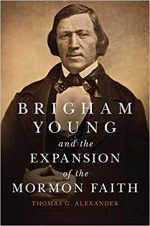
Back in June, Clark Goble mentioned that he was going to write a review of Thomas G. Alexander’s new biography Brigham Young and the Expansion of the Mormon Faith. It’s one of many misfortunes among the great losses of Clark passing away that we never had the opportunity to read the review he was planning on writing about the book. As a direct result of Clark’s discussion of the biography, I read the book and thought I might share some thoughts. Thomas G. Alexander was the Lemuel Hardison Redd Jr. Professor of Western American History at Brigham Young University. Along… Read More
-
•
•
23 responses

I don’t know if a complete break with Scouting was necessary. I would have been content if the church had only eliminated Cub Scouts and the Eagle Scout rank. Read More
-
•
•
20 responses
Elder Holland’s talk at the conclusion of the Saturday Afternoon session of the April 2019 General Conference, Behold the Lamb of God, is one of the most powerful talks I’ve ever heard or read. I challenge anyone to read or listen or watch the talk and think that Elder Holland was anything other than deadly serious in his chastisement of the Saints for our failure to fully appreciate and honor the solemn significance of the sacrament. We are to remember in as personal a way as possible that Christ died from a heart broken by shouldering entirely alone the sins… Read More
-
•
•
10 responses
We were left with a bit of a cliff hanger at the end of general conference this year—the promise of a unique general conference next April celebrating the 200th anniversary of the year Joseph Smith said he experienced the First Vision. President Russell M. Nelson spoke briefly of various events in Church history, including the First Vision, the coming forth of the Book of Mormon, the restoration of the Priesthood, and the foundation of various Church organizations. He then encouraged us to: “prepare for a unique conference that will commemorate the very foundations of the restored gospel.” Among that preparation… Read More
-
•
•
13 responses
General Conference begins in two days. I’m looking forward to it, but not as much to the online responses. Read More
-
•
•
14 responses
The revelation that forms the basis of the Latter-day Saint dietary code refers to its contents as “a word of wisdom for the benefit of the Saints in these last days” (D&C 89:1). The Word of Wisdom was treated like its name implies during much of the nineteenth century—wide advise from God, but not a commandment. Today, however, parts of it are treated as a commandment—one that can result in being barred from the temple and Church callings if not followed. How did the Word of Wisdom become a commandment? It is surprisingly difficult to nail down a specific point… Read More
-
•
•
9 responses
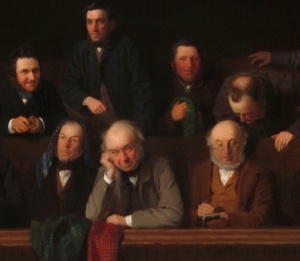
Voir dire, from Norman French, is pronounced “jury selection” by normal people, but I had always stayed one step ahead of the law and never seen it first hand. Read More
-
•
•
14 responses
One aspect of the Word of Wisdom that has long been debated is whether or not all caffeinated drinks should be included under its umbrella. The original revelation specified that hot drinks should not be consumed, which was interpreted to mean coffee and tea. Throughout the twentieth century, the most common explanation for why was that the drinks contained an addictive substance—caffeine. Yet, other caffeinated beverages (i.e. soda drinks like Coca-Cola) were not added to the banned list, most likely because they aren’t too dangerous. This creates a bit of tension—with caffeine being the most compelling reason for banning coffee… Read More
-
•
•
38 responses
This hit my inbox this afternoon: In case you hadn’t heard, Clark Goble just passed away from a stroke. Read More
-
•
•
31 responses
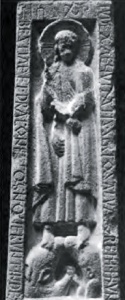
Over at the Interpreter, Nate Oman asks an important question. How will the church explain its relevance to a new generation that is less interested in the narratives that have served the church well in the past? Or as he puts it, what will be the “new language in which to celebrate the Restoration”? Read More
-
•
•
10 responses
The Church recently published some clarifications on issues related to our health code in the New Era magazine and gave them official status in a statement a few weeks later.[1] Essentially, vaping or e-cigarettes, marijuana and opioids, green and iced tea, and coffee-based products are officially prohibited. While we look to the 1833 revelation of Joseph Smith as the basis of that health code, the Church has been selective in enforcing it. In general, prohibition of alcohol, coffee, tea, and tobacco has been treated as the consistent core of the Word of Wisdom while other parts or potential additions have… Read More
-
•
•
8 responses

Many people know of Pres. Monson’s cabin up Provo Canyon at Vivian Park. His son, Clark Monson, reminisces about this on the pages of BYU Studies in “Rod Tip Up!” Kurt Manwaring talked with Monson about the essay. “When I was young, my family and relatives spent considerable time during summers at the family cabin in Vivian Park, Provo Canyon. Dad spent mornings and evenings fishing the Provo River. If we wanted to know where he was, we just walked the short distance from our cabin to the Vivian Park bridge. We could almost always see him fishing, mid-river, within… Read More
-
•
•
59 responses
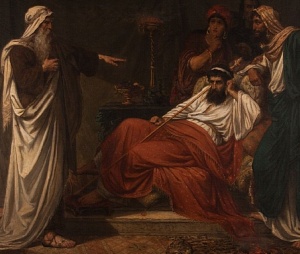
During this particularly awful political moment, I allow myself a sigh of relief when I read news articles about Evangelical leaders and institutions embracing the current president. Read More
-
•
•
3 responses
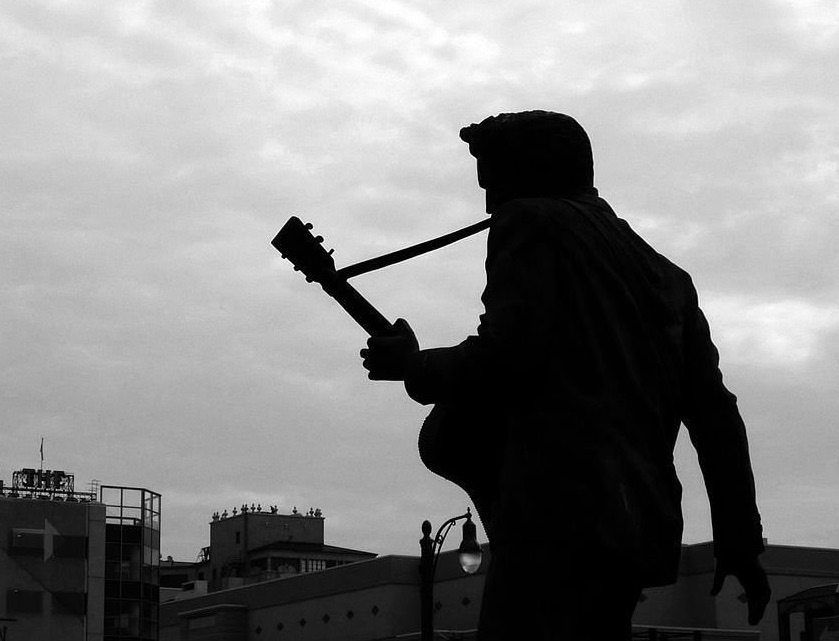
Starting at the end of the 80’s a story came to be told of a Book of Mormon written in by Elvis Presley. Over the years people retold the tale, including in the pages of newspapers, inspirational speaking and the like. Even the Osmonds got into the tale, telling people of the King’s interest in the Church. The tale frequently grew in the telling. Elvis was investigating the Church during a period of unease in his life. His book was given by the Osmonds. He was taking the discussions. He investigated on an off for years. Read More
